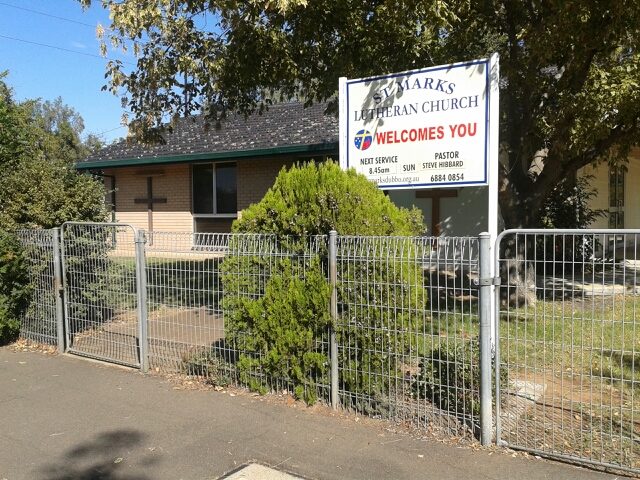“TO WHOM AM I NEIGHBOUR†LUKE 10:25-37
A certain woman went down the road from Wauchope to Port Macquarie and ran over a piece of wood on the road. A nail was protruding from the wood. It punctured her tyre and left her stranded by the side of the road. After seeing that she had a flat tyre she got back in the car, locked the doors and prayed that the Lord would send some help. By chance there came a limousine along the road with a bumper sticker that read, “SMILE! God loves youâ€. When the occupants of the car saw the stranded woman, they moved over to the far lane and accelerated away without smiling.

Likewise, there came a sports car with a bumper sticker saying, “Honk if you love Jesusâ€. The man who was driving passed by, in fact put his foot down, moved over to the far lane and drove on. He didn’t honk or use his mobile phone to call the NRMA about the woman’s dilemma.
But a certain working man, as he travelled to his job, came to the place where the lady had stopped, and when he saw her flat tyre had compassion on her. He stopped his old battered ute, and offered to change the flat tyre. The man took out the spare tyre, jacked up the car, removed the flat tyre and replaced it with the spare.
When he had finished, the woman tried to pay him. He refused the money saying, “If my wife were stranded on the highway with a flat tyre, I’d want some Good Samaritan to stope and help herâ€. He returned to his bumper-sticker less ute, smiled honked his horn and went on his way. Which one of these was neighbour to the woman with the flat tyre?
Of course, you recognized in this story the parable that Jesus told about the Good Samaritan. The reason why Jesus told this story in the first place is important.
A man well versed in the Old Testament law asked Jesus a question because he wanted to trick Jesus into saying something that would show him as a false teacher. “What must I do to inherit eternal life?†In reply to Jesus’ question the lawyers’ answer came straight from the Old Testament. ( vs 27). Jesus congratulates the lawyer for his answer, saying, “Do this and you will liveâ€. But the lawyer isn’t going to let Jesus get away so easily. Do he asks, “Who is my neighbour?†“Is it the unruly child sho lives in my street, or that annoying person who lives next door? Is it the homeless person who annoys passers-by by asking for money for a sandwich? Is it the orphan in Africa whose parents died of Aids or the victim of war in Iraq?†The lawyer continues, “I am confused by the immense range of possibilities which this commandment place before me, Jesus. Shouldn’t we set up priorities of need? Shouldn’t we stipulate certain types of “neighbours†who deserve to be helped over those who seem to abuse this “love your neighbour ruleâ€, simply to get themselves out of trouble? All this must be cleared up before I can love my neighbour. Tell me now, “Who is my neighbour?â€
The lawyer wanted a precise definition about the meaning of the word â€neighbourâ€. And so long as everybody kept discussing definitions, there was no need to get serious about doing anything. Whatever the lawyers motives were, Jesus took the opportunity to make this a time for teaching.
Jesus tells the story of the Good Samaritan and ends with the disconcerting reversal of the question of who my neighbour is. The reversal runs as follows: Who among these-priest-Levite and Samaritan- had behaved as a neighbour? Who was a neighbour to the wounded victim? Was it the priest- a man dedicated to serving God in the temple? Was it the Levite-a teacher of the law-someone who surely knew right from wrong? Was it the Samaritan-an outsider-not regarded as part of God’s family? Who acted like a neighbour to the man attacked by robbers, Jesus asks?â€
Imagine the listeners’ reaction. No! Not the Samaritan. He can’t be the hero-this half breed heathen. He is not even a Jew-one of God’s chosen people. It can’t be him. But of course it was. The teacher of the law must have found it very hard to respond to Jesus’ question when he asked, “Who was neighbour to the man who was robbed?â€
As you know this story inspires Christians to help and show concern for those in need, the poor-starving-homeless-refugees and so on. Generally we are very good at supporting “the neighbour†through LWS, World Vision-40 hour famine and other relief organizations.
But I also want to point out that our neighbour is also the person right here in our community, whom we often see, who we often ignore, who we don’t want to associate with, who we try to avoid because we know that it will cost us time-energy. Perhaps the neighbour who needs you at this time is sitting in front of you, behind-next to you. Too often we look to far away places ti find people whom we can be a neighbour to and overlook those who are right under our nose.
We don’t have to look to far to find people longing for some kind of human warmth- people in our family, among our friends and relatives, those in our neighbourhood, and there always be strangers looking for kindness and compassion.
This story about the Good Samaritan is one I have preached-taught many times. But it is a story I have stumbled over because in it I see just how many times I have been like the priest and Levite-crossing to the other side of the road-walking on and pretending that I didn’t see the pain-need-hurt- because I knew that stopping would cost me something-energy-time-money.
This parable hits us hard as it defines what kind of neighbour we ought to be. Neighbours who ignore labels that separate people; neighbours who let nothing stand in the way of showing compassion-love; neighbours who are gracious –giving their love freely even though we might think the other person doesn’t deserve it.
Neighbours who are willing to reach out to family members, friends, in fact anyone and give a hug of understanding, compassion-forgiveness-comfort. This kind of neighbourliness isn’t just a once in a while thing when it suits us. It is the fulltime work of the Christian. Jesus said to the lawyer ( and to us), “Go then and do likewiseâ€
In other words, “Don’t just talk about it, do itâ€. And that can be hard, really hard. We all know how hard it is to be the kind of Good Samaritanthat Jesus is describing in this story.
The truth is that if our eternal life depended on the way we carry out Jesus’ command to “love God and to love othersâ€, then without a doubt we would be doomed. This command of Jesus to “go and do†reminds us just how much we need Jesus to be our Good Samaritan.
He is the one who gave himself into the hands of his enemies and died on the cross. He is a true neighbour who forgives us our sins –failures-especially our failure to love others. He is our neighbour who paid the price for us to enter the joy of eternal life. Jesus is truly our Good Samaritan.
Having experienced this amazing love, the HSP stirs within us the will to be like Jesus to others. The HSP motivates-enables us to be a Good Samaritan to others.
People get caught up in all kinds of things that turn their lives upside down. Will that person have a “neighbour†to stop and soothe their wounds with an act of gracious love? Will the trouble in their lives be reversed by some caring person? Will that caring person be you or me? There are people all around us who are half dead and lying in a ditch. Some are half dead physically, some emotionally-spiritually. They are powerless to rescue themselves. God grant us the will-love to truly be their neighbours.
Rev. Hayden Bleass





